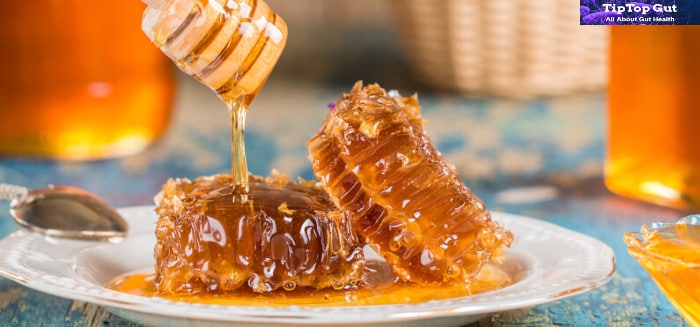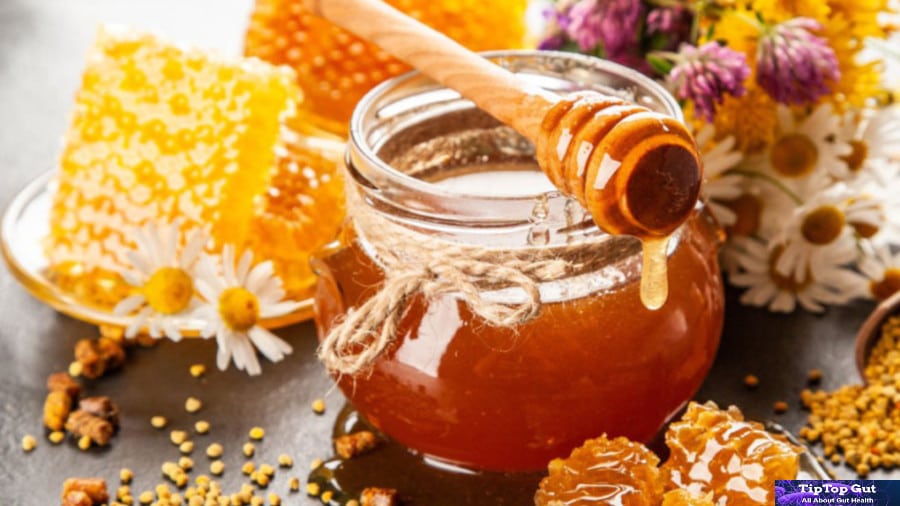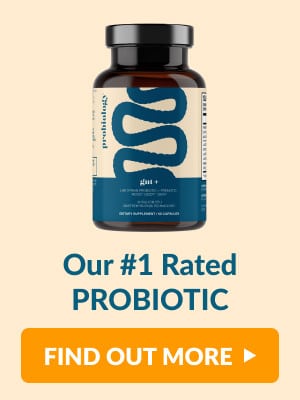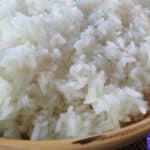Over time, honey has served many functions including an antiseptic for wounds, a natural sweetener, and a cure for sore throats. Honey has become so widespread that it’s an essential item in supermarkets. Honey that you buy from stores is pasteurized. Honey has been placed under high temperatures to enhance its shelf-life and appearance. Pasteurizing improves the color and texture of honey. The process also removes many nutritional values from honey. Compared to pasteurized honey raw, unprocessed honey has numerous advantages to gut health.
It’s always better to get nutrition through the foods rather than supplements. There’s a common question, “is honey good for gut health?” Here. We’re going to answer this question in detail with some scientific studies and research.
Is Honey Good for Gut Health?
Honey is the sweetest gift of nature that offers a wide range of vital nutrients to your body. Along with a number of other health benefits, honey is also good to support your gut health. Following are some ways to elaborate the answer to our question, “Is Honey Good for Gut Health?”
The Prebiotics in Honey
The human digestive system doesn’t process prebiotic fiber. However, the microbiome thrives off it. By consuming healthy, active honey, we can effectively feed our microbiome, which allows it to stay healthy.
Honey’s prebiotics is referred to as non-digestible polysaccharides. Honey also contains compounds that destroy pathogenic bacteria. The two properties of feeding beneficial bacteria and helping to decrease bad bacteria imply that honey can provide significant health benefits.
Finding this Holy Grail of a positive balance of microbial activity and a healthy gut microbiome, it appears the active healing properties of honey could be the solution!
Honey Helps Balance the Gut Microbiomes
Raw honey is a strong prebiotic that feeds healthy bacteria in the intestines to aid in healthy digestion. Honey comprises non-digestive sugars that your digestive tract cannot absorb. Instead, they pass onto the colon, which is where they’re able for them to ferment. This results in short-chain fatty acids, which aid in multiplying bifidobacteria strains, which assist in the digestion of dietary fiber, preventing gut diseases, and producing essential digestive vitamins.
Apart from helping to build more beneficial bacteria in the digestive tract, honey can also be an effective treatment for Helicobacter Pylori bacteria, the most common cause of stomach ulcers.
Honey isn’t the only thing that can boost the health of your gut, but honeycomb itself is an excellent supply of benefits for your health. It contains vitamin A and small amounts of fiber which can improve digestion. Vitamin A is vital in keeping your body’s immune system in check when it recognizes harmful bacteria within the gastrointestinal tract. It’s just in honey in honeycombs, in which you’ll find pollen and royal jelly. Both contain significant B vitamins (B1, B2, B2, B3 and B5, B6, B7, B9, and B1). These vitamins are vital for healthy gut bacteria to grow.
Honeycomb and honey are extremely potent in enhancing the gut microbiome, which can reduce contamination by harmful microbes and increase the growth of the necessary gut bacteria. Gut health can affect overall well-being. A recent study has pointed out that the microbiome in your gut can affect metabolism, cognition, weight management, and mental well-being. The study also suggests that honey, an antimicrobial food, can be utilized to combat the pathogenic virus soon.
4 Four Reasons That Raw Honey Can Be Beneficial for Gut Health
Raw honey is beneficial to the digestive tract because it doesn’t ferment in the stomach like refined sugars, which irritate digestion.
Raw honey is alkaline-forming, unlike processed honey, which forms acid and therefore helps to reduce inflammation.
Raw honey is a rich source of oligosaccharides (sugars) which can act as a food supply (prebiotic) for beneficial bacteria in the gut.
Raw honey is a source of polyphenols, which shield good bacteria and help to eliminate bad bacteria.
How Can Raw Honey Help in Digestion?
Due to the alkaline effect on the stomach, honey could aid or even prevent digestion issues. A teaspoon of honey that is raw before eating can help. Alternately, you can consume it with hot herbal tea or water straight after eating or before bed to aid digestion. It is believed that honey will help keep your digestion in good order since it is a source of enzymes that help give your digestive system an extra boost.

What is the Microbiome?
We contain trillions of bacteria and microbes that live happily in our guts. These “probiotics” are comprised of viruses, bacteria, and fungi. They are collectively described as our microbiome.
They colonize our guts with great success (most often), fighting off the bad guys who come along and try to spread stomach bugs, which can cause diarrhea, sickness, and vomiting.
We collect the first collection of microorganisms in our gut at birth, and we’re born. Later, as we age and develop, we acquire increasing amounts of. We are believed to have a unique microbiome distinct from us and that it is always changing. We have been exposed to bugs wherever we go and what we consume, which adds to our individuality.
Researchers have found that the microbiome’s health is not just about your gut health but everything from your immune system to your mental well-being.
The food we consume can directly affect the microbiome’s condition. A diet deficient in certain fibers could result in our microbiome becoming unhealthy. This is because all bacteria thrive on the fibers known as prebiotic fiber. An unhealthy microbiome is associated with health issues such as asthma, allergies, and weight gain.
Read More:
Probiology Gut+ Review: SCAM or Legit Probiotic Supplement in 2022?
Probiotics and Prebiotics
One way to safeguard your digestive system is to ensure that you’re eating enough of the foods filled with “good bacteria,” also called probiotics. Your digestive system needs to be healthy.
Apart from aiding digestion, Probiotics can also help improve constipation and mental clarity, ease anxiety, diarrhea, and depression, maintain our immune system, and other advantages.
Prebiotics are a great source of food for probiotics. The problem with them is that they’re pretty selective about the foods they consume to remain healthy as they perform their task of keeping us well. They require prebiotics that comes from fiber.
Enzymes don’t digest prebiotics in humans. However, they make it to the large intestine in their natural state. They can be a food source for beneficial bacteria like lactobacilli and Bifidobacteria.
Although all prebiotics contains fiber, however, not all fibers are prebiotic. For a food item to be considered a prebiotic, there are some requirements it must meet.
They include resistance to acidity in your stomach, the ability to be fermented by probiotics found in your gut, and stimulation for the development and activity of intestinal bacteria involved in overall health and well-being.
According to research, raw honey can be a fantastic prebiotic! It’s a rich source of oligosaccharides that aren’t digestible in smaller intestines. They are absorbed into the large intestine, where beneficial bacteria use the nutrients to create what can be used by us.
Another factor that makes honey from raw unique is an un-dairy probiotic. This is an enormous benefit when you suffer from lactose intolerance or are allergic to dairy-based products. Dairy products are typically probiotic or prebiotic. Raw honey is an excellent source of prebiotics.
But, it is believed that raw honey tends to increase the growth of just a few strains of bacteria, namely lactobacilli and Bifidobacteria, to be precise. You may also be able to supplement it with other fibers and plant foods that are believed to be beneficial prebiotics, such as onions, bananas, garlic, acacia gum, artichokes, whole grain and.
To comprehend how raw honey can benefit digestion, first, we need to look at what’s happening in our bodies.
How Does Gut Function?
Our food is chewed, which begins digestion because saliva breaks down food. Swallowing can force food into the stomach. Peptic acid and enzymes diluent the stomach and break down the food. The stomach acids and enzymes break down proteins and destroy most bacteria found in food. The remaining food particles are then transported to the small intestine.
The principal food groups, proteins, carbohydrates, and fat, are broken into amino acids and sugars, and the fatty acids are taken into the bloodstream. The colon, also known as the large intestine, absorbs the leftovers that are not digested. It removes water and salt as the colonic bacteria transform sugars, starches, and protein into short-chain fats that can be used to generate energy.
The pancreas produces an alkaline liquid with strong enzymes that break down proteins, fats, and carbohydrates. It also is the source of insulin, the hormone. The liver takes in the blood through the gut. It cleans it, eliminates toxic substances, breaks down medications, stores nutrition, and synthesizes proteins. It also synthesizes the bile. Which the gall bladder stores as well as stores after meals. After a meal, this is pushed to the small intestinal tract. There it assists in digesting fat.
Frequently Asked Questions about Honey and Gut Health
Can honey heal your gut?
Honey has been utilized to treat digestive problems like ulcers and diarrhea. Peptic ulcers are a common occurrence inside the stomach and digestive system. Use of 1 or 2 teaspoons of honey in raw form on empty stomachs is said to relieve discomfort and aid in healing.
Is honey a good option to treat a leaky stomach?
Honey is sugar and should be advised to avoid during the treatment protocol. For some, however, who have no issues like the overgrowth of yeast or blood sugar levels, small quantities of honey from the local area might be acceptable.
Can honey be a beneficial probiotic?
Honey is being acknowledged as a possible prebiotic as it contains Oligosaccharides that can stimulate the development of lactobacilli and Bifidobacteria. In addition, it has antimicrobial compounds that could work in synergy with probiotics against specific pathogens.
Does honey destroy probiotics?
It was discovered that probiotics could survive in the honey 20% solution for more than 12 hours. The pharmacodynamics that underlies the antibacterial properties of manuka honey have been studied to determine the duration of the lifespan and growth of bacteria after having been treated with honey.
How does honey affect digestion?
Honey is loaded with enzymes that work as catalysts in the digestion process, particularly breaking down sugars and carbohydrates. Honey can help remove diarrhea due to its slower passage, compared to sugars that are commonly used, through the stomach and into the intestine.
How do you think it will take honey to take to digest?
It is possible to locate this information on many kinds of honey labels. It is easy to utilize honey as an energy source for events that require a long distance. You can use it like any other carbohydrate gel because honey requires the same amount of time for the journey from mouth to muscles – approximately fifteen minutes.
What effect does honey have on the stomach?
Raw honey is an effective prebiotic that feeds beneficial bacteria in the intestines to aid in healthy digestion. Honey is a source of non-digestive oligosaccharides that cannot be digested into digestion. These oligosaccharides move onto the colon, where they can be fermented.
Does honey benefit gut flora?
Prebiotics, such as raw honey, are essential for good gut health because they’re composed of fibers that our bodies cannot digest. However, prebiotics can be taken in through probiotics (live beneficial bacteria living in our digestive tract).
Read More:
Best Vitamin for Gut Health: 7 Best Vitamins to Improve Gut Health
Scientific Studies and References
- Honey: U.S department of Agriculture
- Benefits of Honey: HealthLine
- Samarghandian S, Farkhondeh T, Samini F. Honey and Health: A Review of Recent Clinical Research. Pharmacognosy Res. 2017 Apr-Jun;9(2):121-127. doi: 10.4103/0974-8490.204647. PMID: 28539734; PMCID: PMC5424551.
-
Zhang S, Lu Z, Tian C, Zhang Q, Liu L, Meng G, Yao Z, Wu H, Xia Y, Bao X, Gu Y, Sun S, Wang X, Zhou M, Jia Q, Sun Z, Song K, Niu K. Associations between honey consumption and prehypertension in adults aged 40 years and older. Clin Exp Hypertens. 2020 Jul 3;42(5):420-427. doi: 10.1080/10641963.2019.1693584. Epub 2019 Nov 23. PMID: 31760826.
- Ramli NZ, Chin KY, Zarkasi KA, Ahmad F. A Review on the Protective Effects of Honey against Metabolic Syndrome. Nutrients. 2018 Aug 2;10(8):1009. doi: 10.3390/nu10081009. PMID: 30072671; PMCID: PMC6115915.
- Cianciosi D, Forbes-Hernández TY, Afrin S, Gasparrini M, Reboredo-Rodriguez P, Manna PP, Zhang J, Bravo Lamas L, Martínez Flórez S, Agudo Toyos P, Quiles JL, Giampieri F, Battino M. Phenolic Compounds in Honey and Their Associated Health Benefits: A Review. Molecules. 2018 Sep 11;23(9):2322. doi: 10.3390/molecules23092322. PMID: 30208664; PMCID: PMC6225430.

















